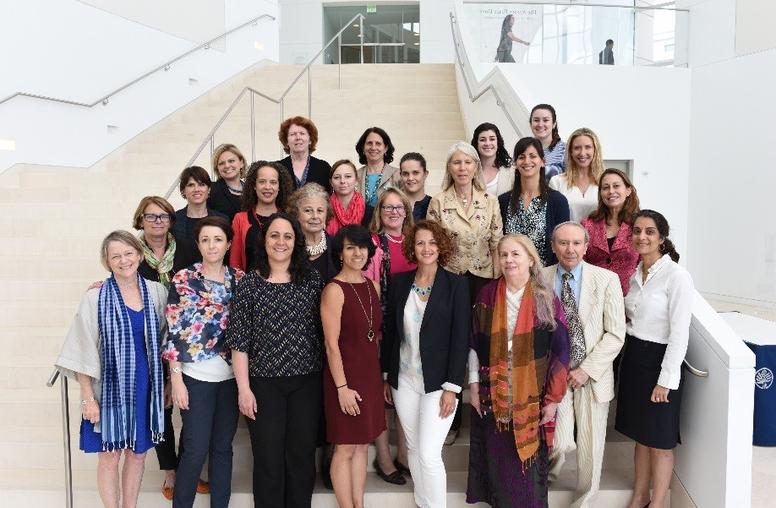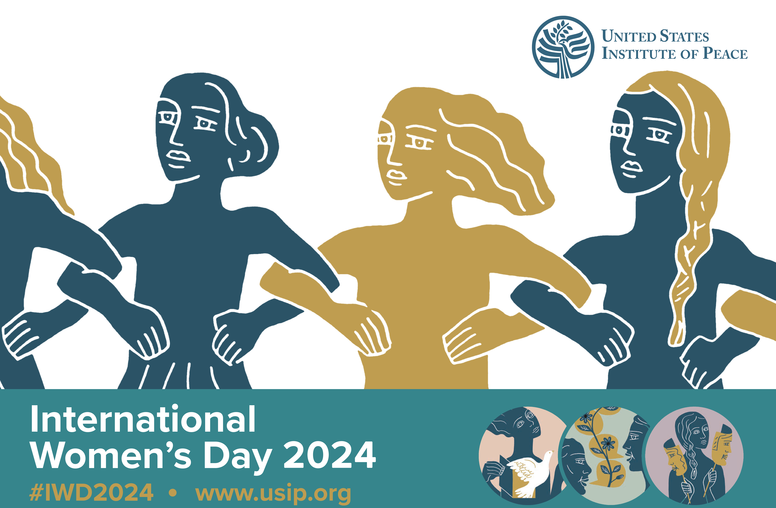 Gender
Gender
USIP's Work on Gender
Violent conflict and extremism have different impacts on men and women, and understanding those distinctive effects is critical for designing effective peacebuilding approaches and ensuring greater gender equality and protection for women and girls. Over the past two decades, international organizations and the U.S. government have increasingly recognized the importance of gender equality in creating enduring, peaceful societies. The U.S. Institute of Peace advances scholarship, carries out programs on the ground, and informs policy on women, peace and security. USIP works with academics, the military, peacekeepers, diplomats and practitioners to advance women’s participation in decision-making, promote peaceful concepts of masculinity and prevent sexual violence in conflict.
Learn more in our fact sheet on USIP's Work on Gender.
Featured Publications

How to Support Female Entrepreneurs in Afghanistan
Potential areas of cooperation between the Taliban and the international community, such as private sector development and alternative livelihoods to now-banned opium poppy cultivation, will be on the agenda at a meeting of international envoys for Afghanistan hosted by the United Nations in Doha from June 30 to July 1. Discussions on women’s rights are not included, as the Taliban consider it an internal matter. This is ironic, given that the private sector is one area where the Taliban allow limited women’s participation.

The Relationship Between Social Media and Violence in Papua New Guinea
The online sharing of gruesome images and videos showing dead and dismembered bodies on social media is commonplace in Papua New Guinea (PNG). For instance, when a horrific massacre took place in Enga province in February this year, it was images shared on WhatsApp that alerted many to the violence.

Changing North Korea’s Future Through Its Women
News reports over the past few years featuring Kim Jong Un’s sister, Kim Yo Jong, or his daughter, Kim Ju Ae, have led to speculation about a future North Korea ruled by a woman. This is an intriguing development worth monitoring, given the North Korean regime’s history of patrilineal succession. However, ordinary North Korean women may have a greater role to play in the future of the country.
Current Projects

Border Security Training Program
USIP’s Border Security Training Program trains police officers from Kenya’s Border Police Unit and General Service Unit who serve along the Kenya-Somalia border. The program increases the capacity of Kenyan police to manage conflicts nonviolently and to effectively partner with communities along the Kenya-Somalia border in order to more effectively interdict terrorist suspects and reduce justice-related drivers of violent extremism in Northeast Kenya.

U.S. Civil Society Working Group on Women, Peace & Security (U.S. CSWG)
The U.S. Civil Society Working Group on Women, Peace, and Security (U.S. CSWG) is a non-partisan network of civil society organizations with expertise on the impacts of women in war and their participation in peacebuilding. Established in 2010, the working group is an engaged coalition to promote the effective implementation of the U.S. National Action Plan on Women, Peace and Security.

International Women's Day
Celebrated annually on March 8, International Women’s Day engages citizens from all corners of the globe to recognize how far women have come in society—and how much more needs to be done.